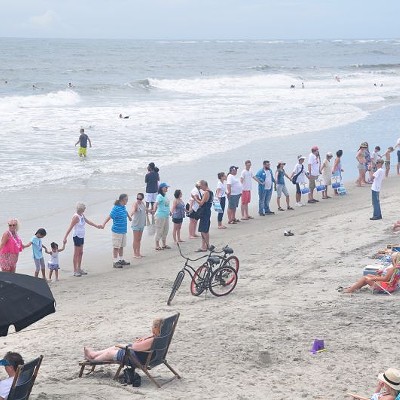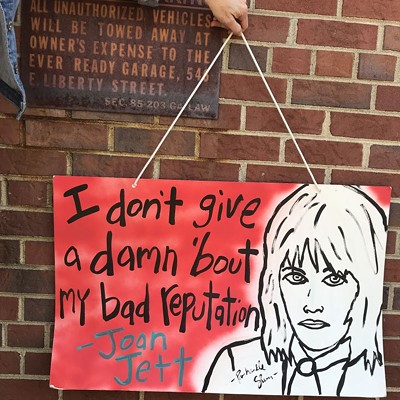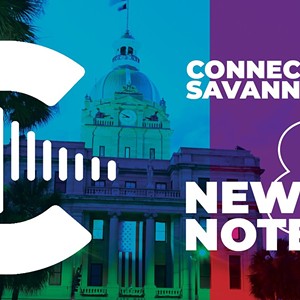US LIBERAL types often get a bit of blowback.
Sometimes, when our bleeding hearts stand up to oppose the corporate greed and corruption masquerading as economic development, the breezy flak becomes a wind tunnel of hot air.
It’s about creating jobs, you crazy Socialists, holler the chest beaters who toe the line for projects that put our waterways and wildlife at risk (river dredging, oil pipelines, blowing out whale ears with seismic testing, take your pick.) Come on now, why do you hate money?
So silly! Of course, only a simpleton has a bone to pick against thoughtful enterprise that contributes to a sustainable economy and benefits the greater good. Even the most sycophantic Bernie Sanders fangirl knows money doesn’t do bad all by itself.
The problem is how powerful folk and their corporations use it to discredit valid concerns and smother dissent (not to mention to asphyxiate democracy itself, but we’ll talk Citizens United and the Koch Brothers another time.)
When it comes to Georgia’s precious, irreplaceable streams and marshes, the ecological empaths experienced a couple of rare victories last week against the raging machine of blind profit.
In a move that practically shocked the underpants off of us all, Gov. Nathan Deal announced last Thursday that his administration is against the Palmetto Pipeline, a billion dollar project that would slice through Southern wetlands and rivers on its way to the sea like General Sherman on a leaky bulldozer.
The 360-mile tunnel o’ terror proposed by oil and gas transportation goliath Kinder Morgan has rallied all kinds of opposition, not just from environmental activists but also local industry like Savannah’s Colonial Oil and hundreds of property owners up and down the planned dig zone. The pipeline has also provided rare common ground for liberals and right-wing Libertarians, who take umbrage at the pipeline’s audacious assumption of ordinary people’s backyards.
At the crux of the shared argument is whether Kinder Morgan ought to be allowed to commandeer private property in the form of permanent 50-foot easements along the route. The Dept. of Transportation must first give its blessing on a certificate of public convenience and necessity on such annexation, then the EPD has to sign the permission slip.
Now, the Fifth Amendment grants government entities the right to exercise eminent domain in the interest of the public utilities and highways. But since Kinder Morgan is not a government agency, and the pipeline’s contribution to the greater good seems to consist mainly of making more money for Kinder Morgan, its designs on eminent domain have caused quite a ruckus online and in the papers.
This explains why we may have read more than a few mistaken references lately to “imminent domain,” which actually kind of works, considering how speedily Kinder Morgan thought it might push through the permit approval process without much outcry by hosting “informational meetings” posing as official DOT hearings.
It even jumped the proverbial gun by sending out contracted surveyors illegally, a pair of whom got caught deep in the Screven County woods last week after they “accidentally” backed up 1.7 miles onto a farm owned by Morris Communications’ CEO Billy Morris. (His brother, Charles H. Morris, owns Morris Multimedia, which publishes Connect.)
Morris wields big influence in Atlanta, and it’s a fascinating coincidence that Deal’s announcement came two days after the arrests. Apparently, some domains are more imminent than others.
The governor’s opposition also came hours before pipeline protestors converged on Augusta Technical College’s Waynesboro campus for the DOT’s last actual public hearing, giving a busload of Savannahians reason to celebrate.
“This has been a battle by Georgians for Georgians which grew from grassroots to grasstops,” applauded Push Back the Pipeline cheerleader KC Allen from the road.
Like many of us, Allen has been pleasantly surprised at the strange bedfellows made over the issue . “The thing we all share is the conviction that no public need would be met by this pipeline.”
But the fight ain’t over yet. The DOT has until May 19 to grant its certificate, and Kinder Morgan took out a full-page ad in Billy Morris-owned Savannah Morning News on Friday touting the economic advantages of the pipeline. (Guess they figured Connect readers can make up their own minds.)
Also, considering Deal’s record on environmental issues, his objection to the pipeline is surely more political than moral. Don’t act all aghast should it suddenly become convenient to pipe oil through Georgia in 2016.
But we anti-corporate commoners will take every win we can get, no?
Another unexpected triumph came recently when the Savannah City Council passed a resolution opposing offshore drilling exploration and its attendant seismic testing off the Atlantic coast. At issue are the risks of Deepwater Horizon-esque spillage as well as the testing itself, which blasts deafening airguns at the ocean floor and has been proven to disrupt the vital communication of marine wildlife.
Savannah joins more than 50 coastal towns and counties that have passed such resolutions, forming what looks like a thick strand of pearls along the eastern seaboard according to a graphic posted at Oceana.org. The vote made it through our uber-contentious council unanimously, a sign that big oil’s greasy money might be losing its hypnotic hold on the job-hungry Southeast.
“People don’t want the oil industry to be allowed to claim the future of our communities,” says Alice Keyes of Brunswick-based advocacy group One Hundred Miles. “If we stay silent, we’re leaving the door open to have important decisions made for us.”
Since the Obama administration announced it would offer up a five-year program for leases in federal waters starting in 2017, nine applications have been submitted by drilling companies to the Bureau of Energy Management for review, four in Georgia. But rabid resistance from coastal cities could affect BOEM’s decisions next winter.
“The feds have been shocked by the number of people who have come out and said they don’t want this,” says Catherine Wannamaker of the Southern Environmental Law Center.
But again, let’s not start singing hosannas.
At the exact same time as the city was voting to keep the drills away, the Savannah Trade and Convention Center was hosting the American Petroleum Institute’s annual Pipeline Conference—a bitter irony to remind that there are far more corporate dollars pouring into our town, state and country than votes from you and me.
But our pugnacity against Big Bad Greed and its propaganda must endure! Especially this Thursday, May 14, when the Tybee Island City Council is expected to vote on the proposed Plastic Bag Ban ordinance.
And also at the fourth annual March Against Monsanto this Saturday, May 16 in Johnson Square.
If you're at the beach, you can put out a paw for Hands Across the Sand.And when the next pipeline/oil rig/chemical company threatens the marshes/endangered species/our food supply, we’ll have to be there, too.
Nope, the work may never be done.
All we can do is squeegee out our bleeding hearts and keep on going.



























